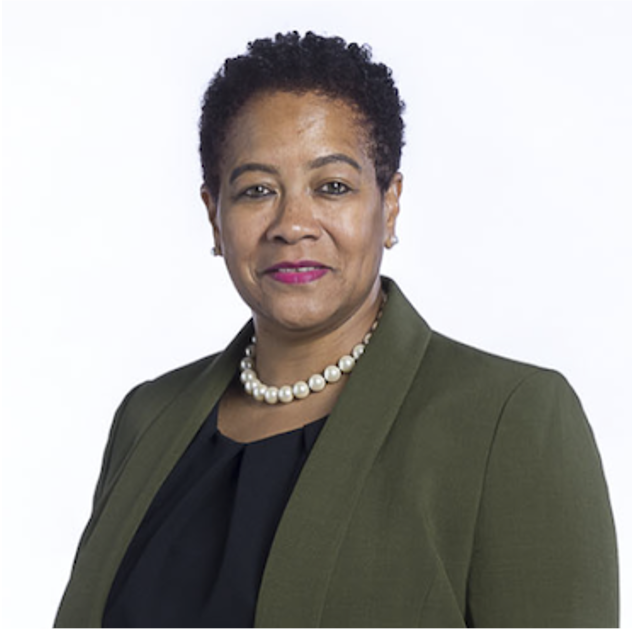Chamber News
Striking the Balance | Diversity, Equity, Inclusion & Access Update | Workforce Report | January 2024
January 18th, 2024
Striking the Balance
In the December 20, 2023 edition of USA Today, a headline read, “DEI under fire: Rise in ‘reverse discrimination’ lawsuits explained.” After the headline, there were a series of articles sharing instances of reverse discrimination claims being filed against corporations and the outcomes.
Reverse discrimination is a term used to describe situations where individuals claim to be discriminated against in favor of historically underrepresented or disadvantaged groups. Many of the diversity, equity, and inclusion initiatives organizations have put in to place are now being questioned, especially in wake of the U.S. Supreme Court’s decision to prohibit all colleges in the country from using race as a consideration in admissions.
Preventing reverse discrimination claims involves implementing fair and transparent policies that promote diversity, equity, and inclusion while minimizing risk of individuals feeling unfairly treated. A common issue in this space is establishing rigid quotas or targets based on demographic characteristics. This approach may prioritize numerical goals over individual qualifications, leading to perceptions of reverse discrimination. It can also lead to tokenism where individuals from underrepresented groups are hired or promoted solely to fulfill diversity quotes, without considering their qualifications or fit for the role. This type of behavior often leads to employees not in these groups feeling undervalued.
Here are some additional actions to consider.
- Build diverse pipelines: For new hires, develop partnerships with organizations that cultivate diverse talent and target some of your outreach efforts to diverse populations. For tenured employees, use succession planning and diversify participants in mentoring and leadership development programs.
- Focus on inclusive hiring and promotion practices: Identify specific competencies and skills needed for a role, articulate the factors considered in hiring and promotion decisions, use structured interview techniques, like asking the same set of competency and skill-based questions and using a weighted rubric to rank order the candidates.
- Include diverse people in the hiring and promotion processes: Small diverse interview panels allow for different perspectives when evaluating a candidate’s performance, makes diverse candidates feel more comfortable, and demonstrate that your business is welcoming and inclusive.
- Establish a grievance process: Address perceptions of unfairness promptly by having mechanisms in place to address concerns, investigate claims, and communicate the resolution.
- Learn about reverse discrimination cases: Here are a few examples to start with.
U.S. Congress Senate Bill 3252: Abolish Government DEI Act
On November 8, 2023, United States Senator Eric Schmitt from Missouri introduced Senate Bill 3252, proposing to terminate the authorities of certain diversity, equity, and inclusion (DEI) offices and officers of the federal government. The bill lists a total of 40 executive offices and officer positions that would be terminated on the date of the bill’s enactment. The bill targets the DEI and Civil Rights offices of numerous executive departments and agencies, including, among others, the Department of State, the Department of the Interior, the Department of the Treasury, the Department of Energy, the Department of Health and Human Services, and the Equal Employment Opportunity Commission. If enacted, the bill would abolish a number of DEI officer positions in these agencies and would prohibit the head of a covered agency from carrying out “any plan relating to diversity, equity, and inclusion.” The Administrator of the United States Agency for International Development would also lose the ability to implement the agency’s Diversity, Equity, Inclusion, and Accessibility Strategy. The bill has been read twice and referred to the Committee on Homeland Security and Governmental Affairs.
American Alliance for Equal Rights alleges that the Fearless Fund’s Strivers Grant program is discriminatory
American Alliance for Equal Rights (AAER) sued the Fearless Fund, a venture capital firm with a charitable grant program that provides $20,000 grants to Black female entrepreneurs. AAER alleged that the program violates Section 1981 and sought a preliminary injunction. On November 13, 2023, the Eleventh Circuit granted the parties’ motion to expedite oral argument and tentatively scheduled argument for the week of January 29, 2024.
Landscape Consultants of Texas, Inc. challenges the City of Houston’s Supplier Diversity Program
Landscape Consultants of Texas, Inc. challenged Houston’s government contracting set-aside program for “minority business enterprises” that are owned by members of racial and ethnic minority groups. The companies claim the program violates the Fourteenth Amendment and Section 1981. On November 13, 2023, the City of Houston filed its motion to dismiss, arguing that the plaintiffs failed to state claims for disparate treatment under the Equal Protection clause and contracting discrimination under Section 1981. In particular, the city argued that one plaintiff, as a company owned 51% by a woman, might have been treated identically to a minority business enterprise and that all plaintiffs failed to allege that they were “actually prevented, and not merely deterred” from contracting with the city. The city also argued that since the plaintiffs never actually submitted a bid to contract with Houston, they could not make out a Section 1981 claim.
Challenges to California Community College System’s DEI Competencies and Criteria Recommendations
In April 2023, the California Community College system adopted new regulations that require faculty to “employ teaching, learning, and professional practices that incorporate DEIA principles” and direct community colleges to “consider an employee’s demonstrated, or progress toward, proficiency in diversity, equity, inclusion, and accessibility competencies” in employee evaluations. Two groups of professors, represented by the nonprofit organization Foundation for Individual Rights and Expression (FIRE), sued the California Community College system in June and August 2023 in the Eastern District of California. Both suits seek to enjoin the application of the new evaluation standards. The professors argue that the system’s new regulations compel speech in violation of the First and Fourteenth Amendments by requiring faculty to either parrot the state’s stance on DEI or be punished. On November 14, 2023, a magistrate judge in the June lawsuit (Johnson v. Watkin) recommended granting an injunction, writing that “California’s goal of promoting diversity, equity, inclusion, and accessibility in public universities does not give it the authority to invalidate protected expressions of speech.” The district court has not yet ruled on this recommendation.
America First Legal Foundation vs. Macy’s, Inc
On November 21, 2023, America First Legal Foundation (AFL) sent a letter to Macy’s, Inc. Board of Directors and the Equal Employment Opportunity Commission (EEOC), calling for the commission to initiate an investigation into Macy’s, Inc.’s diversity, equity, and inclusion (DEI) initiatives. The letter alleges Title VII and Section 1981 violations based on the company’s 2022 Diversity & Inclusion Annual Report. The report’s stated goals include achieving ethnic and gender diversity of 50% for the company’s models, 30% for its senior-level management, and 5% for its supplier relationships.
These suggestions to help prevent reverse discrimination claims in the workplace are only a starting point. In addition to adopting the aforementioned practices, seek legal advice to ensure that your hiring and promotion policies and practices comply with relevant laws and regulations. By taking these actions, you contribute to the success of your organization’s DEI initiatives and the broader goal of creating diverse, equitable, and inclusive workplaces for all.

Sherrice Sledge-Thomas
Vice President of Diversity, Equity, Inclusion & Access
SherriceThomas@columbus.org

